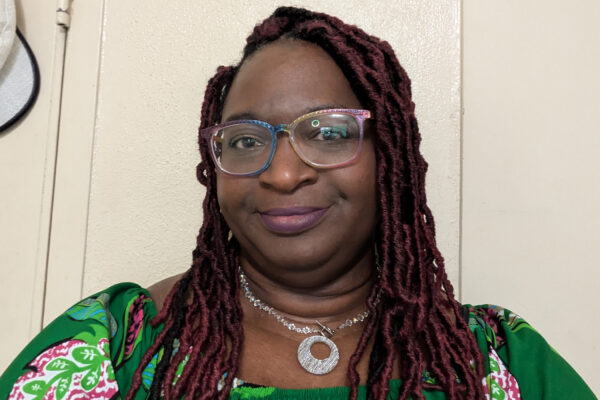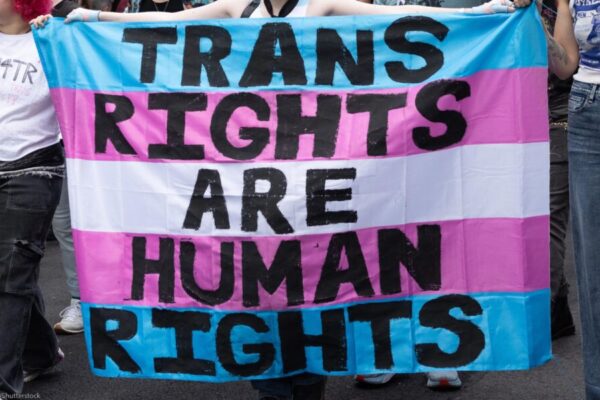During the ACLU of Georgia’s Banned Books Week Virtual Panel, award-winning LGBTQ+ journalist and author Nico Lang emphasized that, for those whose lives are misunderstood or erased, storytelling is survival — not just creative expression.
With book bans rising in Georgia and nationwide, Lang said that sharing trans kids' stories is vital to their visibility and well-being. Many young readers depend on these stories for representation.
“People should understand what a miracle it is that these books exist at all, especially books representing marginalized voices. There are many people telling you, you can’t … I wish we would cherish them and give them the love they deserve. That means not only making sure they have a place in libraries, but also lifting them up and celebrating them,” said Lang, who uses they/them pronouns.
Lang is a nonbinary award-winning journalist with over a decade of experience covering the transgender community's fight for equality.
The author joined two other panelists. LaVonnia Moore, a former Pierce County librarian, shared her experience with censorship and being fired after displaying a book with a trans character. Thomas Jackson, Librarian for African American Studies at the Atlanta University Center, stressed his responsibility to ensure equitable access to knowledge.
Together, the panelists discussed the influence of stories and highlighted the role of libraries in fostering inclusivity. The virtual event aimed to uplift these professionals who create or protect literature that unifies all Georgians.
“This was an important conversation, especially for the times we live in now. We are seeing censorship of books and storytelling and censorship of dissent in general,” said Sarah Hunt-Blackwell, ACLU of Georgia First Amendment Policy Counsel. “Anything not aligned with the current administration faces a complete shutdown. I am proud and humbled that we can gather as an act of resistance. These conversations show our democracy is still alive and well.”
Storytelling bridges the gap between people who know trans individuals and those who do not, Lang said. In writing “American Teenager,” the author aimed to share stories of trans youth to change minds about their right to belong and to promote LGBTQ+ rights.
In collecting the stories, Lang traveled the country and spent weeks with families, getting to know them. Lang asked families what stories they most wanted to share, rather than assigning them. They recalled Ruby, a transgender teen in Houston, loved and supported by her Episcopalian community. Her church even held a renaming ceremony for her. Despite the support system, Ruby faced challenges due to Texas passing anti-trans laws. She plans to move to California for college and a chance to live more freely.
“I thought the most powerful thing to do was give them agency to tell me about themselves, to decide what message they wanted to get across,” Lang said. “(Reporters) are often looking for, if it bleeds, it leads. We need more kinds of stories. We need stories we’ve never heard before.”
Lang and the other panelists agreed: restricting books in libraries diminishes young people's sense of identity, hope, and belonging, and reduces their ability to engage with diverse ideas and perspectives.
Georgia lawmakers are introducing and passing censorship laws, such as House Bill 1084 in 2022 and the proposed HB 127 aiming to ban DEI programs, that restrict classroom discussion about race and gender, and officials and local school boards are pushing to remove books by and about marginalized groups. This month, PEN America, an association committed to the protection of writers and freedom of expression, released data revealing that an unprecedented 22,810 books have been banned in the U.S. since 2021.
The ACLU of Georgia echoes Lang: “All stories have a place in the public marketplace.”
“For all of us, it’s a matter of lifting the community up, and demanding that our lawmakers do better.”
The ACLU of Georgia is actively working to block any new harmful laws and policies restricting free expression. For immediate resources, check out the ACLU’s “Freedom To Be” campaign, helping transgender people and their families find joy and community.




